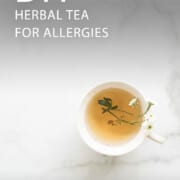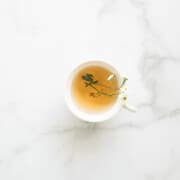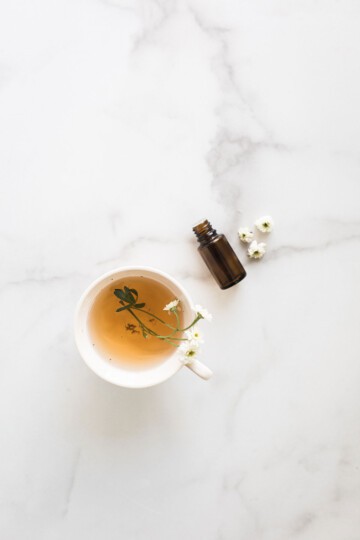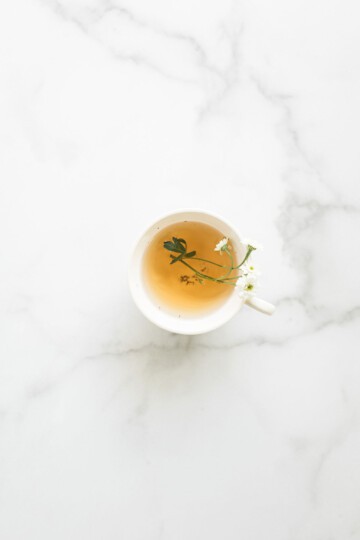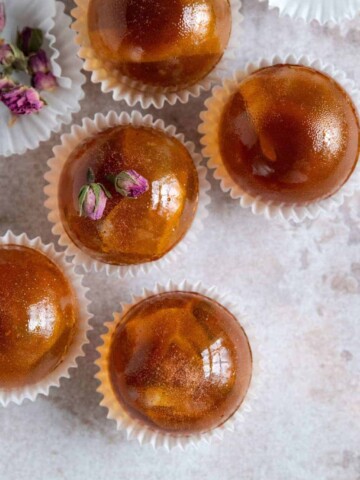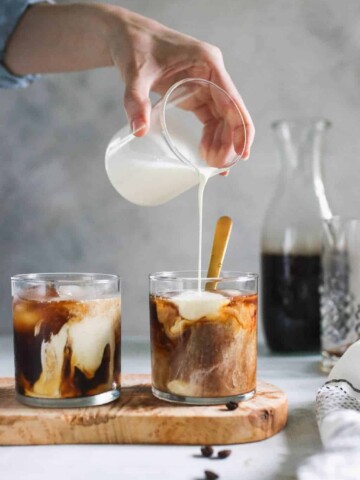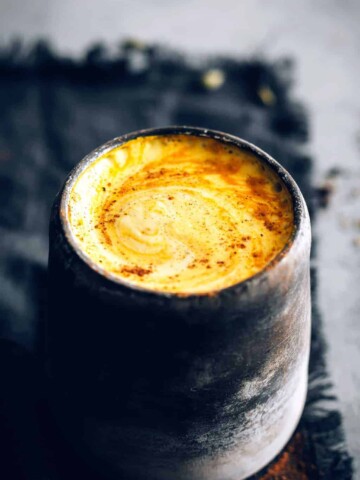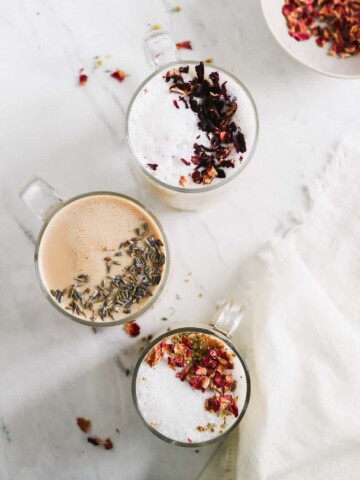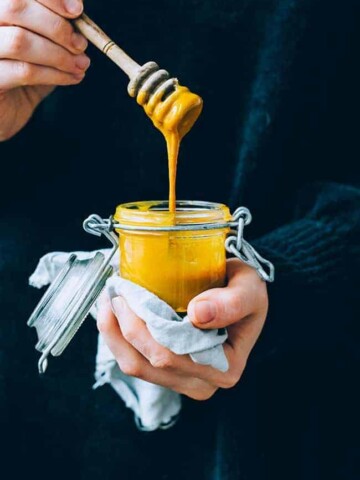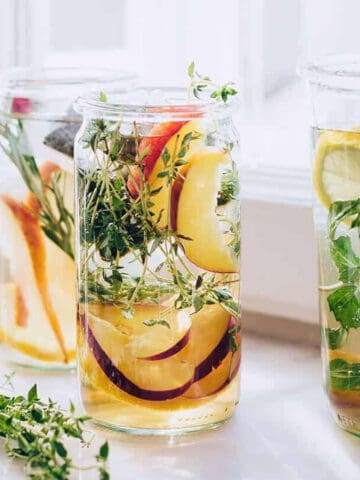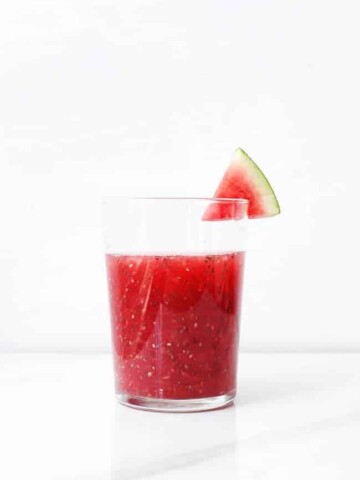I consider myself pretty lucky when it comes to allergies. I only suffer a wee bit from seasonal allergies, but even then, they can be pretty miserable. I've seen friends and family suffer each year with all of the horrid parts of allergies—itchy eyes, runny nose, sneezing, congestion, headaches, etc.
It's all so frustrating! Lucky for you allergy-sufferers, there are some natural remedies that can help alleviate some of the suffering. This herbal tea blend for allergies is one of the most effective.
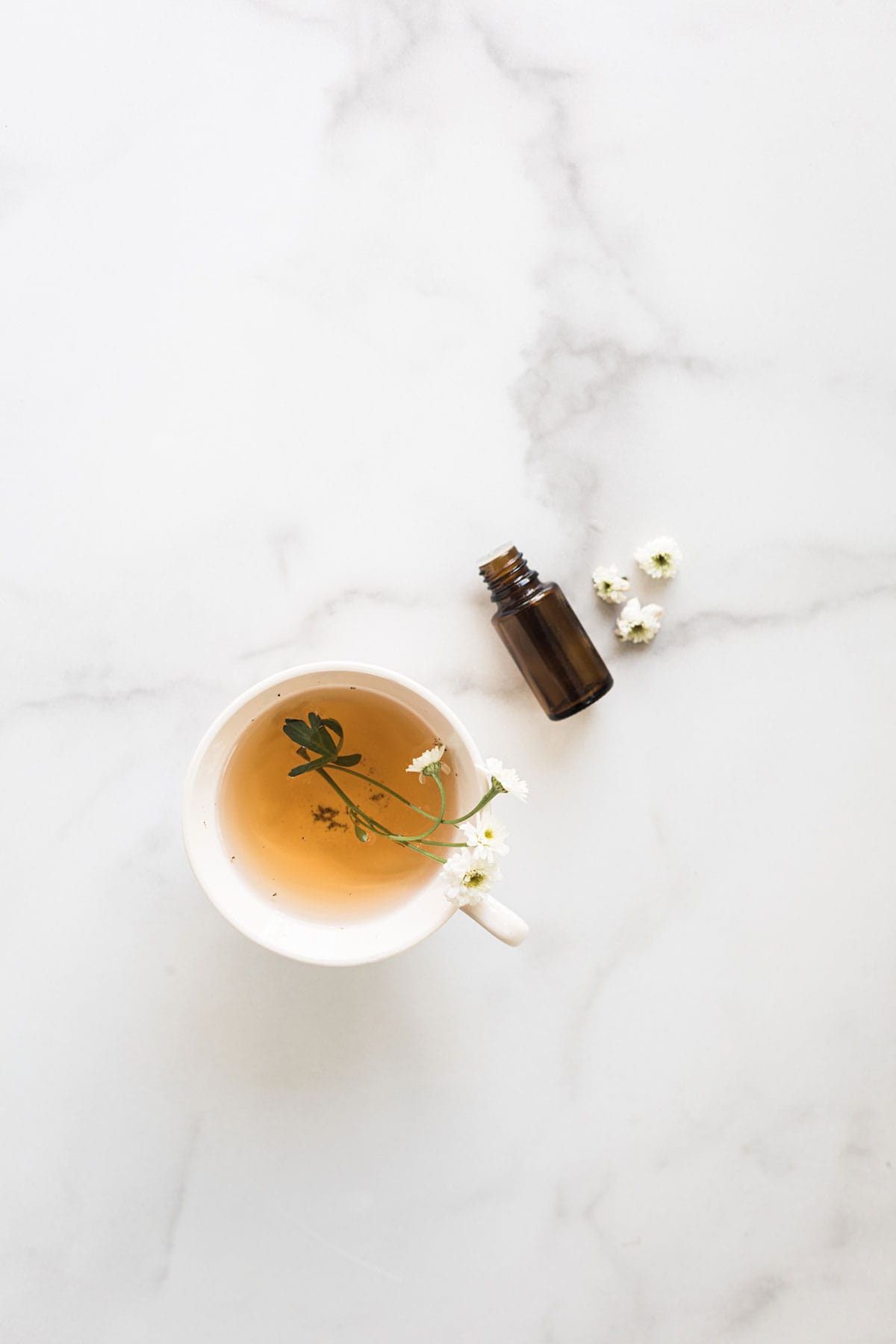
Herbs for Allergy Tea
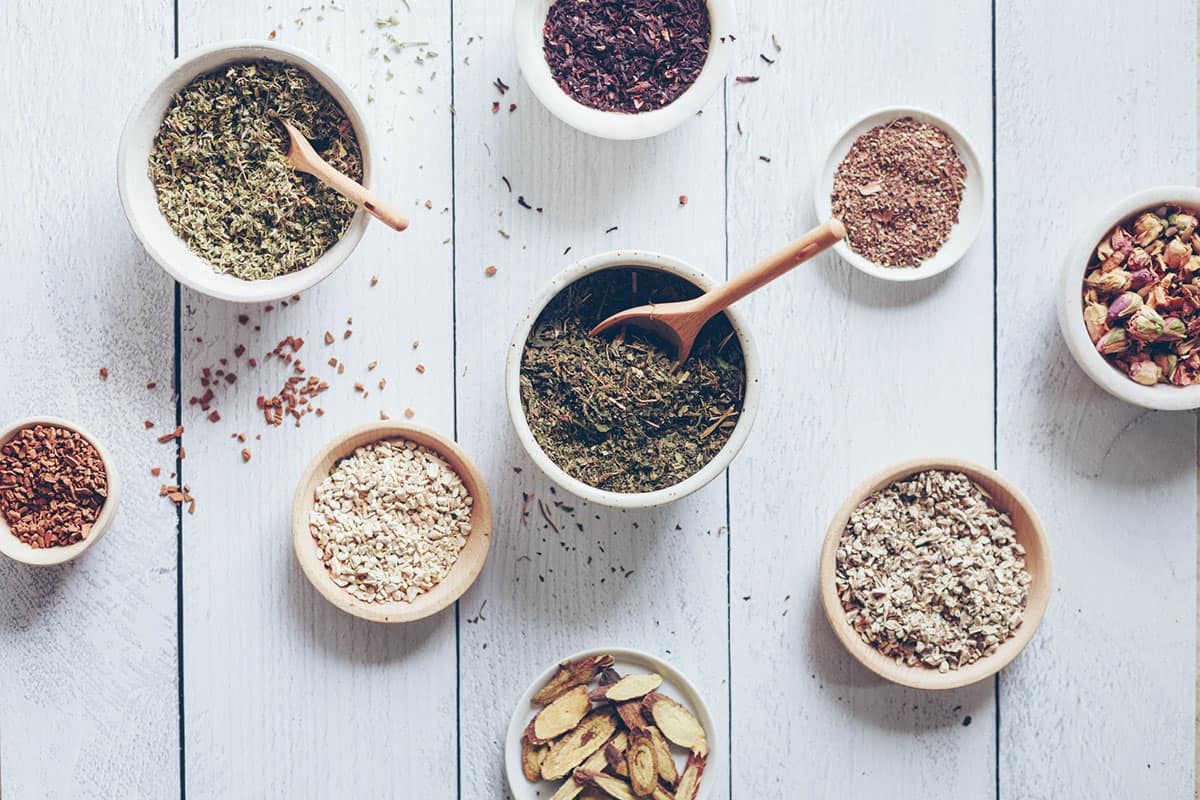
Let's talk about the different components of an allergy tea and how they work to relief symptoms:
Rooibos
Rooibos, also called Red Bush Tea, comes from South Africa. It is naturally caffeine-free and contains two bioflavonoids called rutin and quercetin. Both of these compounds block the release of histamine, the chemical our body produces in response to allergens and has been shown to have benefits for skin irritations [source].
Peppermint
Peppermint acts as a decongestant, an anti-inflammatory, and has known antibacterial and antiviral effects [source] [source].
Dried ginger
Ginger has so many amazing healing properties! When it comes to allergies and colds, it works as a natural antihistamine and anti-inflammatory [source].
Stinging Nettle
Nettles have a very well known beneficial effect on the inflammatory pathways in the body that lead to the symptoms of seasonal allergies [source]. Drinking tea or eating the nettles are both beneficial.
You might have less than fond memories of stinging nettles from your childhood. These are the same nettles, but they turn from irritant to healer when boiled into tea. Boiling fresh nettles will remove the stinging properties, while taking them in capsule, fresh, or dried form can help relieve itchy, watery eyes, sneezing, and runny nose.
Yerba mate
Yerba Mate is very popular in South America. It contains natural caffeine and acts as an anti-inflammatory in response to allergens [source]. This can help to open up respiratory passages and increase oxygen.
Lemon balm
Lemon balm belongs to the mint family but has a lemony scent, hence, its name. It's calming, and it can help with headaches, the common cold, and other respiratory issues. In animal models, it has been shown to relieve some of the swelling of the tissues that takes place in inflammatory processes, and that could be beneficial in allergies [source].
Honey & Lemon
Contrary to popular belief, honey doesn't actually help combat allergies, but it can soothe an itchy throat. In a study with subjects suffering from the four main allergy symptoms, nasal congestion, nasal itchiness, runny nose, and sneezing, honey helped their antihistamine work much better to improve all of them [source]. It seems it can also inhibit the action of the cells causing those symptoms in this study on honey-bee collected pollen’s effects on mast cells [source].
I like to use local raw honey, but the regular kind will help coat a sore throat, too. The lemon acts as a detoxifier and source of vitamin C to boost immunity. You can add one or both to your herbal tea for allergies.
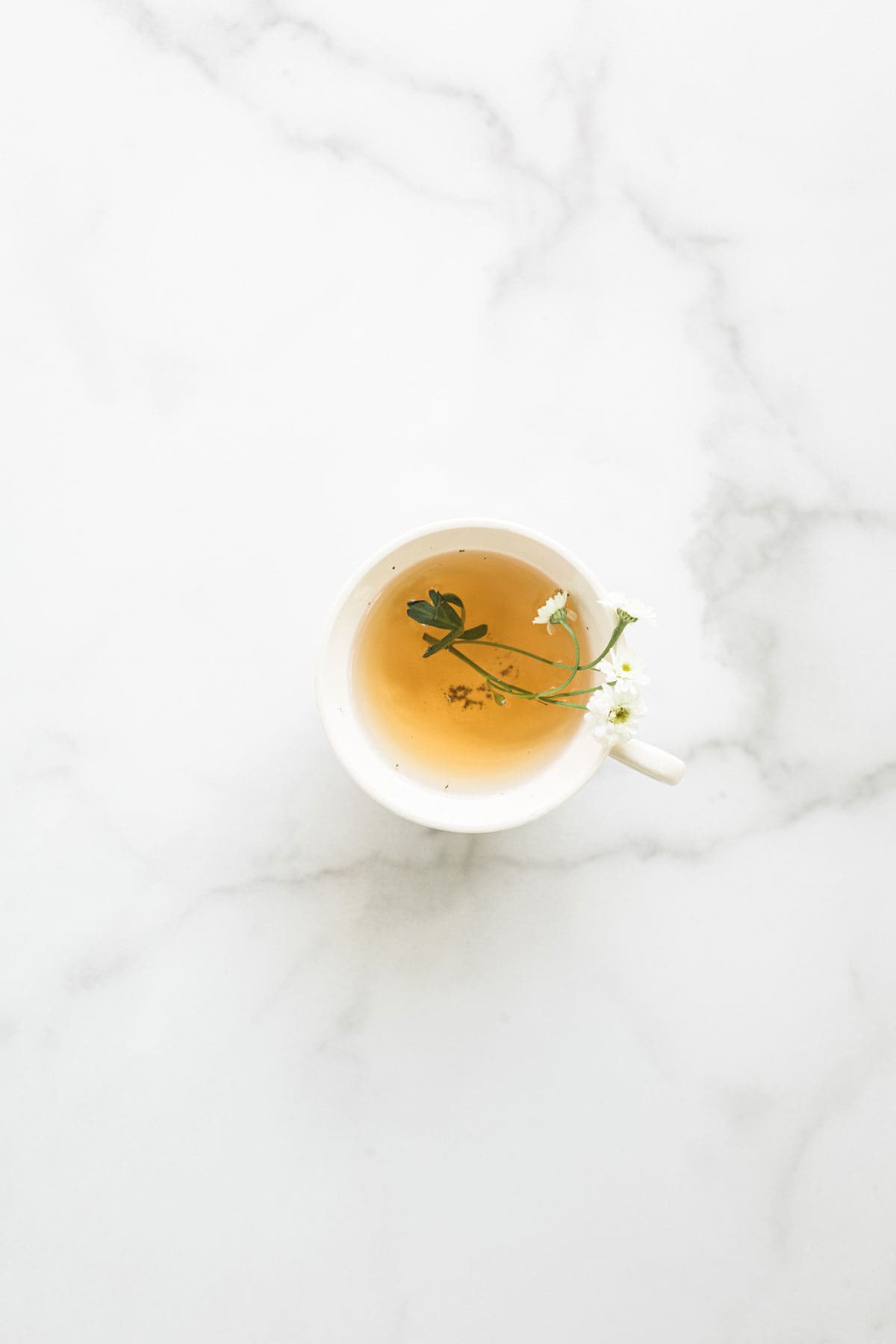
Here are some simple herbal tea infusions you can make to help you get through spring allergy season. They can be taken hot or turned into an iced tea.
📖 Recipe
Herbal Tea for Allergies
Equipment
- Glass jar with lid or other airtight container
- Tea kettle
Ingredients
All-Purpose Allergy Blend
- 1 part rooibos
- 1 part peppermint tea
- 1 part nettle tea
- 1 part yerba mate
- 1 part lemon balm tea
Antihistamine Tea
- 1 bag stinging nettle tea
- 1 bag peppermint tea
- ½ teaspoon ground ginger you can use grated fresh ginger, too
Instructions
- Mix ingredients together and store in an airtight container.
- Use about 1 heaping teaspoon per 8 ounces hot water.
- Let steep for about 5 minutes, then add honey or lemon, if desired.
Notes
FAQ
Peppermint, rooibos, nettle, stinging nettle, yerba mate, lemon balm, and ginger all have properties that can alleviate allergy symptoms. Use the blends recommended above to tackle different problems.
3-4 cups a day is a good starting point. Listen to your body and adjust the quantity accordingly.
This article was medically reviewed by Dr. Gina Jansheski, a licensed, board-certified pediatrician who has been practicing for more than 20 years. Learn more about Hello Glow's medical review board here. As always, this is not personal medical advice and we recommend that you talk with your doctor.
Related
Looking for more tea and coffee recipes to heal your body and spoil your taste buds? Here are some reader faves:

